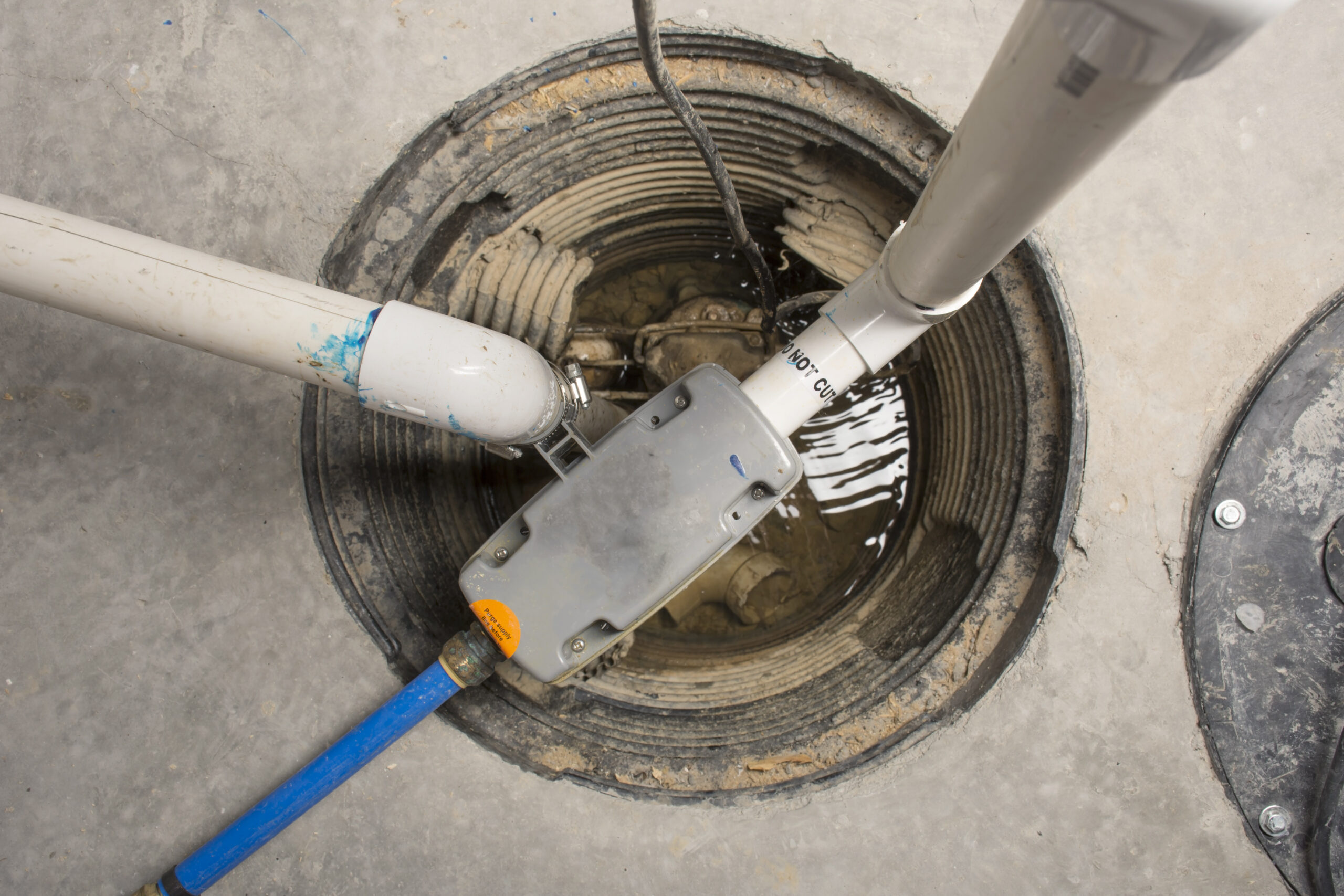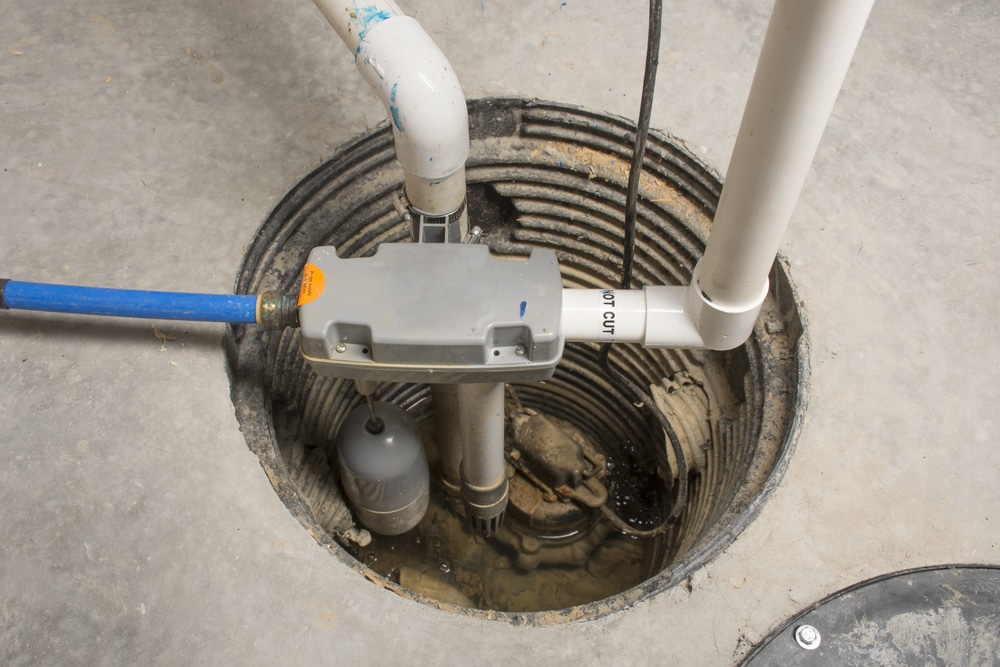
Sump Pump Installation & Repair in Sandy, UT
When heavy rain or melting snow hits Utah, a reliable sump pump is the first line of defense against basement flooding and costly water damage. There may be situations where your home may see excess water or sewer leaks. These substances will need to be removed from the home to keep it safe and prevent further damage. Sump pumps can be a lifesaver when it comes to these situations and can help you work quickly to improve your home.
Installing a proper sump pump that can keep up with a high water demand can be done by our experts at Connect Home Services. Not all sump pumps are created equal. Our team can give you advice and recommendations on which brands can work for your home.
We provide professional sump pump installation, replacement, and repair for homeowners across Sandy, Sandy, Salt Lake City and many surrounding suburbs, such as South Jordan, West Valley City, West Jordan and Draper. Whether you need a new sump pump installed, an existing unit repaired, or a backup system added for extra protection, our experienced team has you covered.
Call 801-649-3880 today for same-day sump pump service.
How Sump Pumps Work
A sump is a low space that collects water or other liquids. Around homes, this is usually a pit in the ground. A sump pump then detects when too much water is in the sump and uses force to pump it away from the foundation of the home.
The pit is typically 2 feet deep, so when the water rises above a determined level, an electrical circuit turns on to help push the water out. They also have a valve that only works one way. This is so that water can not flow back into the pit once it is pushed out.
Some sump pumps will let you know when the liquid is reaching an alarming level, or the pump can not keep up with the demand. Sump pumps also need access to electricity to function properly. If your power is out or you are experiencing a large storm, you may need to have a generator to power the sump pump in case of an emergency.
Why Sump Pumps Matter for Utah Homes
Utah’s fluctuating temperatures, spring runoff, and occasional heavy storms can cause groundwater to collect around your home’s foundation. Without a working sump pump, this water can leak into basements or crawl spaces, leading to mold growth, structural damage, and electrical hazards.
A properly installed sump pump helps:
- Prevent basement flooding and standing water
- Protect against mold and mildew buildup
- Reduce foundation stress and cracking
- Maintain property value and indoor air quality
Types Of Sump Pumps
 Every home is unique, so each home could benefit from different types of sump pumps.
Every home is unique, so each home could benefit from different types of sump pumps.
If you believe your home can benefit from a sump pump, here are some common types you can choose from.
Submersible: These are the bulkiest option for pumps and they sit right inside your sump pit. They function while underwater, hence the name submersible. They run quietly but are typically the most expensive option because they are large and hard to reach for maintenance.
Pedestal: Pedestal sumps are raised upright where the motor sits on top, and the intake device is on the bottom. The motor should not get wet when using a pedestal pump. Pedestal pumps are less expensive and are easily accessible. Some experts see these options as less reliable than submersible, but they can work well for many homeowners.
Battery operated: Many homes need a backup pump for large amounts of water or in a power outage. Battery-operated sump pumps can come to life when your first line of defense is down. Battery sump pumps require a large battery, similar to one you would find in your car.
Combination: There are options that have a primary pump and a backup pump all in the same package. This can be a budget-friendly option for some because you won’t need to purchase two systems. Keep in mind that if the pump pit in your home is smaller, a combination unit may be too large to fit inside the pit.
How To Help Your Sump Pump
While a pump should do its job to keep your home free of damage, there are some things you can do to ensure that it can perform correctly. If you start to notice loud noises or odd sounds coming from the pump, it is best to schedule maintenance with Connect to get your sump fixed. This will make sure the pump is ready to go when the water demand increases.
You can also have frequent gutter cleanings and maintenance to keep extra water away from your home. Clearing out debris and ensuring the downspouts are connected will help move water away from the house, saving your sump pump some extra work.
Alternative Uses For A Sump Pump
There are many uses for water pumps around a home. Sump pumps can help protect your home and improve certain areas when their services are not needed underneath your home. Some alternative uses for your pumps include:
- Make a fountain or waterfall
- Drain a pool or hot tub
- Water dry spots in your yard
- Draining or filling livestock tanks
>>Also check: Water Heater Services
Make sure the best of the best work is done on your sump pump. Contact Connect online or call (801) 649-3880 to schedule service.
FAQs About Sump Pump Plumbing Services
-
How long should a sump pump last?
Most pumps typically have a lifespan of 7 to 10 years before requiring replacement. Engaging a skilled technician to conduct repairs and provide ongoing maintenance can extend the pump’s longevity.
-
Does my house need a sump pump?
While not typically mandated by building codes, investing in a pump as a precautionary measure is highly advisable and can significantly reduce potential stressors. Due to Utah’s climate, with heavy spring snowmelt and seasonal rainstorms, many homes in Sandy and the Salt Lake Valley experience groundwater buildup and foundation moisture.
If your basement feels damp, shows water near the foundation, or has flooded in the past, installing a sump pump is highly recommended. In fact, newer homes in Sandy often require sump pumps as part of building codes to prevent water intrusion.
-
What size of sump pump do I need for my home?
It depends on your home’s square footage, basement depth, and water volume. Our technicians can help you choose the correct pump size and horsepower for optimal protection.
-
How often should I test my sump pump?
You should test your sump pump monthly, especially during rainy and snowmelt seasons. Pour a bucket of water into the sump pit, the float switch should activate, the pump should remove the water, and then shut off automatically. Regular testing ensures your system is ready before any storm or flood event.
-
Do sump pumps need regular maintenance?
Regularly scheduling a plumber’s service for your pump each year is a wise practice. This routine check-up allows for the prompt resolution of minor issues, ensuring your system operates efficiently for an extended period.
-
How often should the pumps be replaced?
In general, it’s advisable to only replace the pump when it reaches its designated lifespan. Nonetheless, prioritizing maintenance is crucial to maximize the system’s longevity and enable service professionals to identify any potential problems early on.
-
Do sump pumps work in winter?
Yes, sump pumps work year-round, including winter. However, you must ensure the discharge line is free of ice or snow, since a frozen pipe can cause water to back up into your basement.
Our team can help insulate or reroute discharge lines for reliable winter operation.
-
Should I get a battery backup system?
Absolutely. In Sandy, UT, power outages often occur during severe storms or snow melt — exactly when your sump pump is needed most. A battery backup system ensures your pump continues working even without electricity, protecting your basement and foundation from flooding

